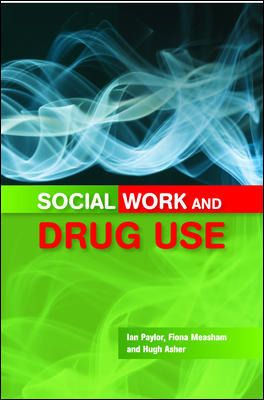Social Work and Drug Use
Receive via shipping:
- Colour, print bound version of the complete text
Chapter 1: Prevalence, Patterns and Policy
Chapter 2: Defining Drug Users
Chapter 3: Stigma, HCV and HIV
Chapter 4: The Service User's Perspective
Chapter 5: Care and Control
Chapter 6: Recovery
Chapter 7: Involving Service Users in Services and Interventions
Chapter 8: Networking, Advocacy and Empowerment
Chapter 9: Meeting the Challenge
Glossary
Contacts, Websites and Other Sources of Information
Notes
References
Index
Ken Barrie, Alcohol and Drug Studies, University of West Scotland, UK
“This comprehensive, well written book will be essential reading for social work students and practitioners who need a clear, useful and relevant overview of the issues involved in working constructively with drug using service users. Its emphasis on working in partnership, while also attending to issues of risk and vulnerability, is realistic and practical, and being resolutely ‘social’ in its outlook, the book will appeal to and inspire novice and experienced practitioners alike.”
Dr Mark Hardy, Department of Social Policy and Social Work, University of York, UK
Alcohol and drug use are cross-cutting issues in all areas of social work practice and social workers need to know how to identify, assess, engage and support their substance-using clients effectively. This book provides a comprehensive and practical account of this important area of health and social care and provides a basis for social workers to develop a rounded approach to their practice with drug and alcohol users.
The book unravels the relevant theory and research and provides insights and practical pointers for those working with drug users. Key topics covered include:
- Prevalence, patterns and policy and defining drug users
- Stigma, HCV and HIV; care and control
- The service user’s perspective; involving service users in services and interventions
- Recovery; networking, advocacy and empowerment
Social Work and Drug Use is key reading for social work students and those training in related areas such as youth justice, criminology, education welfare and youth work. Practitioners, academics and those undertaking post-qualifying training will also find it a valuable reference.

